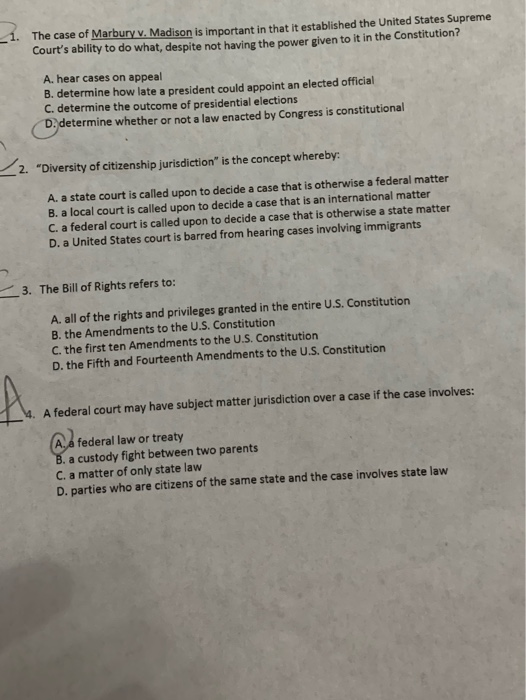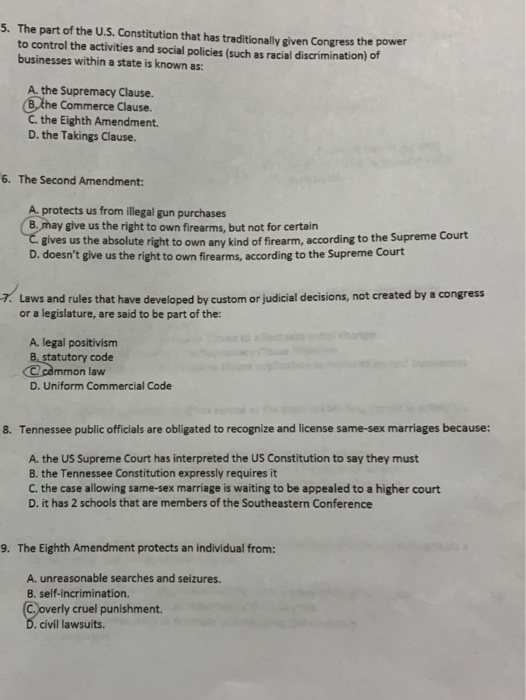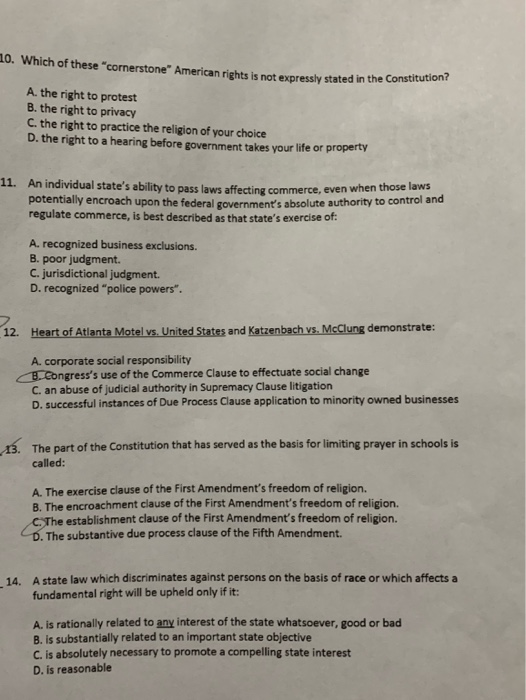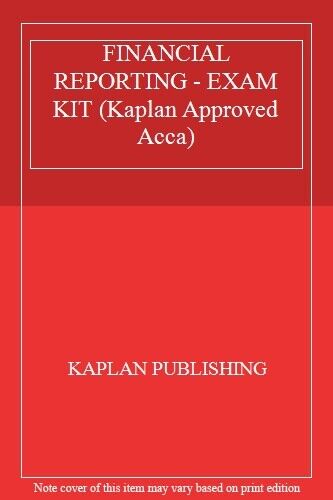1. The case of Marbury v. Madison is important in that it established the United States Supreme Court's ability to do what, despite not having the power given to it in the Constitution? A. hear cases on appeal B. determine how late a president could appoint an elected official C. determine the outcome of presidential elections D. determine whether or not a law enacted by Congress is constitutional 2. "Diversity of citizenship jurisdiction" is the concept whereby: A. a state court is called upon to decide a case that is otherwise a federal matter B. a local court is called upon to decide a case that is an international matter C. a federal court is called upon to decide a case that is otherwise a state matter D. a United States court is barred from hearing cases involving immigrants 3. The Bill of Rights refers to: A. all of the rights and privileges granted in the entire U.S. Constitution B. the Amendments to the U.S. Constitution C. the first ten Amendments to the U.S. Constitution D. the Fifth and Fourteenth Amendments to the U.S. Constitution 1 4. A federal court may have subject matter jurisdiction over a case if the case involves: A. a federal law or treaty B. a custody fight between two parents C. a matter of only state law D. parties who are citizens of the same state and the case involves state law 5. The part of the U.S. Constitution that has traditionally given Congress the power to control the activities and social policies (such as racial discrimination of businesses within a state is known as: A. the Supremacy Clause. (B, the Commerce Clause. C. the Eighth Amendment. D. the Takings Clause. 6. The Second Amendment: A. protects us from illegal gun purchases B. may give us the right to own firearms, but not for certain gives us the absolute right to own any kind of firearm, according to the Supreme Court D. doesn't give us the right to own firearms, according to the Supreme Court 1. Laws and rules that have developed by custom or judicial decisions, not created by a congress or a legislature, are said to be part of the: A. legal positivism B. statutory code C. common law D. Uniform Commercial Code 8. Tennessee public officials are obligated to recognize and license same-sex marriages because: A. the US Supreme Court has interpreted the US Constitution to say they must B. the Tennessee Constitution expressly requires it C. the case allowing same-sex marriage is waiting to be appealed to a higher court D. it has 2 schools that are members of the Southeastern Conference 9. The Eighth Amendment protects an individual from: A. unreasonable searches and seizures. B. self-incrimination. C. overly cruel punishment. D. civil lawsuits. 10. Which of these "cornerstone American rights is not expressly stated in the con A. the right to protest B. the right to privacy C. the right to practice the religion of your choice D. the right to a hearing before government takes your life or property 11. An individual state's ability to pass laws affecting commerce, even when those laws potentially encroach upon the federal government's absolute authority to control and regulate commerce, is best described as that state's exercise of: A. recognized business exclusions. B. poor judgment. C. jurisdictional judgment. D. recognized "police powers". 12. Heart of Atlanta Motel vs. United States and Katzenbach vs. McClung demonstrate: A. corporate social responsibility B. Congress's use of the Commerce Clause to effectuate social change C. an abuse of judicial authority in Supremacy Clause litigation D. successful instances of Due Process Clause application to minority owned businesses 13. The part of the Constitution that has served as the basis for limiting prayer in schools is called: A. The exercise clause of the First Amendment's freedom of religion. B. The encroachment clause of the First Amendment's freedom of religion. The establishment clause of the First Amendment's freedom of religion. D. The substantive due process clause of the Fifth Amendment. 14. A state law which discriminates against persons on the basis of race or which affects a fundamental right will be upheld only if it: A. is rationally related to any interest of the state whatsoever, good or bad B. is substantially related to an important state objective C. is absolutely necessary to promote a compelling state interest D. is reasonable









